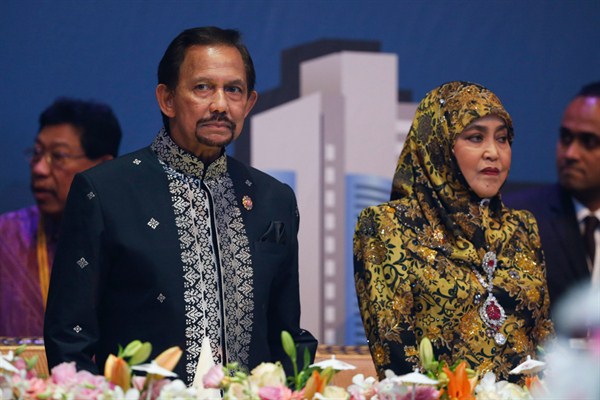Editor’s note: This article is part of an ongoing WPR series on the Trans-Pacific Partnership and the potential impact on members’ economies.
WPR: What are the expected economic benefits and potential downsides for Brunei from the TPP?
Joshua Kurlantzick: Brunei’s economy, heavily dependent on petroleum and petroleum products, needs to become more diversified over the next two to three decades. That is absolutely critical for Brunei to survive as a high-income country that offers extremely lavish benefits for its citizens. The low price of oil is already taking an enormous toll. The government may be implementing harsher versions of Shariah law, in part, to forestall dissent as social welfare programs necessarily decline in the face of falling oil revenues, though it is not yet clear what aspects of the proposed new laws will actually be implemented. The government has already frozen salaries for many public-sector employees and begun cutting fuel supports.

